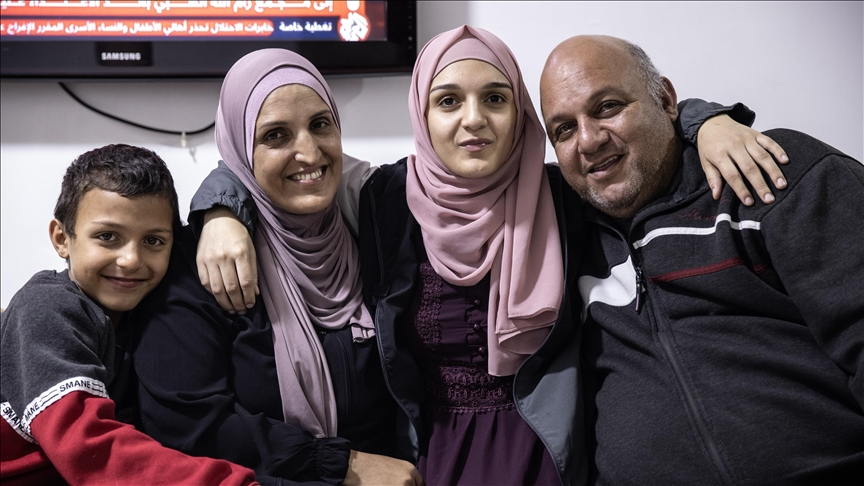Women's social rights

Islam gave women social rights unprecedented until then. Islam to confirm that when she reaches puberty and she will show signs of maturity and healthy behaviors, terminate the powers of the guardian or authorized person over him, whether it is the father or someone else. For her, she enjoys the right of full maneuver in her property and personal matters.
Ahmed Ibrahimi in the Book “Sharia provisions regarding civil law”(1), say: “The girl when she reaches the years of maturity, whether she is single or a widow, and we are not sure of her, her father or someone else replacing her by guardians, relatives who are forbidden to marry him and the trustees who care for him, they have an obligation to keep it with them even against her will. meanwhile, if she is single or widowed, has come of age and is capable and honest, self-confident, none of her guardians has the right to force her to stay with him. ”(2)
As well, Islam recognized her the right to accept and reject anyone who asks her to be engaged.
Prophet, sal-lall-llahu alejhi ve sel-lem, say: “The guardian next to the girl has no competence.” (Narrated by al-Bukhaari and Muslim)
It also says: “The widow is more competent in herself than her guardian, the bachelor is asked to be engaged, and her permission is silence. ”(3)
It is Hansa Binti Judham, which her father married against her will. This was a widow, went to the Prophet, sal-lall-llahu alejhi ve sel-lem, and he annulled her marriage. (Narrated by al-Bukhaari and Muslim)
She even has the right to personally participate in the coronation. It is stated in the provisions of the Shari'ah: “For the implementation of the crown, it is conditioned that each of the spouses be free, in adulthood and mentally sound when crowning both or with the authorized, or one of them with the other authorized person to be present. "(4)
Islam freed the woman and gave her the right to be with the man she chooses, to build a happy family which is surrounded by love and the continuity of which is protected by mercy and each of them finds peace and rest in it.
Allah the Exalted says: “And from the facts (of the majesty of) It is for His own good, he created the party of your own kind (women), so that you may find rest in them and created love and mercy between you. In this there are arguments for people who think.” (Er-Rum: 21)
This means that all rights must be exercised between the spouses within the framework of love, and if love is weakened the rights will remain protected, and p.sh.: care, softness, Compassion, East (of children), faith and good thinking, collaboration at work and preoccupations, beautification, sexual pleasure, relaxation, jealousy, best parting.
The right of supervision obliges each of the spouses to very important tasks:
– The husband is charged with the responsibility of maintenance and supply.
– The wife has the obligation to take care of the children and their education as well as to plan the housework
The right to gentleness belongs to both spouses
Allah the Exalted says: ” … Live a good life with them … ” (En-Nisa: 19)
Prophet, sal-lall-llahu alejhi ve sel-lem, say: “The best of you is the best for your family, and I am the best of you for my family.” (Narrated by Ibn Majah)
The right of mercy is for both spouses
Allah the Exalted says: ” … Live a good life with them. If you hate them, be patient, why is it that Allah gives so much good in an item that you hate … ” (EnNisa: 19)
Prophet, sal-lall-llahu al ej hi ve sel-lem, say: “The believer does not abandon the believer if he hates one quality from her and likes another.” (Transmeton Muslimi)
The right to leave heirs is for both spouses
Allah the Exalted says: “Allah has created for you wives of your own kind, of your spouses – children and grandchildren and supplied you with (provisions) good … ” (En-Nahl: 72)
The right of fidelity and good opinion belongs to both spouses
Prophet, sal-lall-llahu alejhi ve sel-lem, say: “There is jealousy that Allah loves and jealousy that Allah hates. The jealousy that Allah loves is the jealousy in doubt, while the jealousy that Allah hates is the jealousy that is not in doubtful things.” (Transmeton Abu Dawud)
The right of their joint participation in preoccupations and general and special matters, belongs to both spouses
Prophet, sal-lall-llahu alejhi ve sel-lem, he involved his wives in many of his matters and matters of vocation, starting from the descent of truth into his heart in the cave of Hira and his words to Khadijah: “I was scared for myself … , and until the last day of his blessed life when he told Aisha: Call me Abu Bakr, your father and brother so I write a message, because I'm afraid that someone will lose their appetite and someone will say: I am more deserving, and Allah and the believers accept nothing but Abu Bakr…” (Narrated by al-Bukhaari and Muslim)
The right to adornment belongs to both spouses
As for the woman, she by her very nature loves adornment. Allah the Exalted says: “A, what is expected with jewelery, and in dialogue it is unclear (they ascribe to God)?” (Ez-Zuhruf: 18), as well as the Prophet, sal-lall-llahu alejhi ve sel-lem, say: “The best woman is the one who rejoices when she sees him.” (Transmeton Taberaniu)
When the Prophet saw it, sal-lall-llahu alejhi ve sel-lem, the unregulated body shape of Haule Binti Hakim, asked Aisha, e ajo tha: She is a woman who has no husband, (her husband) he fasts during the day and prays at night, she therefore has no husband, for he has forsaken himself and lost it. He was met by the Prophet, sal-lall-llahu alejhi ve sel-lem, and said: “O Othman, do you not have me as an example? You pray at night and fast during the day, but you have obligations to the family, and you also have obligations to your body for it, fortune telling, but also sleep, fasts, but also eats. Then came to them the woman in question perfumed as if she were a bride.” (Transmeton Taberaniu)
It is narrated from Jabir Ibn Abdullah that Ali, radijall-llahu anhu, came from Yemen and found Fatima, radijall-llahu anha, coming out of Ihram, he wore colorful clothes and dyed his eyes. Ali ignored her this action, by garlic i tha: My dad ordered me to do this. (Transmeton Muslimi)
Narrated by Subeja, radijall-llahu anha, that when he passed the period of impurity after birth, was adorned for those who sought it for betrothal. (Narrated by al-Bukhaari and Muslim)
Meanwhile as for the husband, rounded out his stance, Ibn Abbas who said: “I want to beautify myself for it, just as I desire that she also be adorned for me.”
The right to sexual contact and pleasure belongs to both spouses
Allah the Exalted says: “Your wives are your abode, approach your breeding ground as you wish…” (El-Bekare: 223)
Prophet, sal-lall-llahu alejhi ve sel-lern, said: “Even when one of you satisfies lust (me halal) ka sadaka, STRESSED: O Prophet of Allah, or even when one of us satisfies his own lust, is rewarded for this? Tha: What do you think, if he had done this in haram would there be sin? Thane: Anyway yes. Tha: Also if he does this with halal he will have to be rewarded.” (Transmeton Muslimi)
The right of entertainment is for both spouses
Narrated by Aisha, radijall-llahu anha, which says: “It was a holiday when black captives played with shields and spears. The Prophet said: Do you want to watch? I told: Po. He lifted me up behind him, my page was over his page and he was saying: Keep – mbahuni o Me Erfide. ” (Narrated by al-Bukhaari and Muslim)
The right to jealousy belongs to both spouses
The example of praiseworthy jealousy is in dubious cases, whereas of despised jealousy is jealousy in unsuspecting cases, excessive jealousy, a woman's jealousy of her ex-wife or her jealousy of her partner.
The right of separation
If any unwanted person hits the family, then the husband and wife are responsible for its normalization by mutual consent and consultation. Allah the Exalted says: “… What if after a consultation and consent (parents) show the desire for termination (earlier) of the breast, it is not a sin for them … ” (El-Bekare: 233)
Even a woman has the right to separate from her husband if she does not love him. Narrated by Ibn Abbas who says: “Came to the Prophet, sal-lall-llahu alejhi ve sel-lem, the wife of Thabit Ibn Qays and told him: He did not despise Thabit's religion or morals, but I fear disbelief. Prophet, sal-lall-llahu alejhi ve sel-lern, tha: Will you give him back his garden?? Tha: Po. So he returned the garden to him and the Prophet ordered it and parted from it.” (Transmeton Buhariu)
Even from Berira the Prophet, sal-lall-llahu alejhi ve sel-lem, asked to return her husband (Mugithin), e ajo i tha: “O Prophet of Allah, do you order me? Tha: I just mediate. Tha: I do not need it.” (Transmeton Buhariu)
Participation of sa in kloekit worship
The woman participated in collective worship. Attended the Fajr prayer with the Messenger of Allah,(5) also accompanied him in the lunar eclipse prayer,(6) funeral prayer.(7) in i’tikaf,(8) hajj, as well as the Prophet, sal-lall-llahu alejhi ve sel-Iem, warned Muslims not to bar women from mosques.(9)
Her participation in solemnities
The woman attended the marriage ceremonies. Narrated by Sehli who says: When Abu Usayd al-Sa'idi got married, he called the Prophet and his companions, no food was prepared for them, nor was anyone approached except his wife Ummu Usayd,(10) also took part in festive solemnities.(11) participated in the viewing of the games,(12) as well as in all kinds of social activity carried out by men, and was distinguished from them by her work as a nurse. Umm Al-Ala one of the Companions (females) he treated Othman Ibn Madhun until he died.(13)
________________________
1. “What about the woman”, Dr. Nuredin Atër, fq. 167, so does Imam Hasan EI-Benna in his treatise n: “Obligations of the Muslim woman”, fq. 25.
2. Fq. 158.
3. “Islam and contemporary women's issues”, EI-Behij El-Hauli, fq. 34
4. They narrate the sixth except Bukhari.
5. “Sharia provisions”, Ahmed Ibrahim from the book: “Islam and contemporary women's issues”, fq. 35.
6. Bukhari.
7. Bukhari,
8. Muslim.
9. Bukhari.
10. Bukhari,
11. Bukhari and Muslim
12. Bukhari and Muslim
13. Bukhari
Excerpted from the book “The woman in the calling caravan”, Mustafa Tahhan











